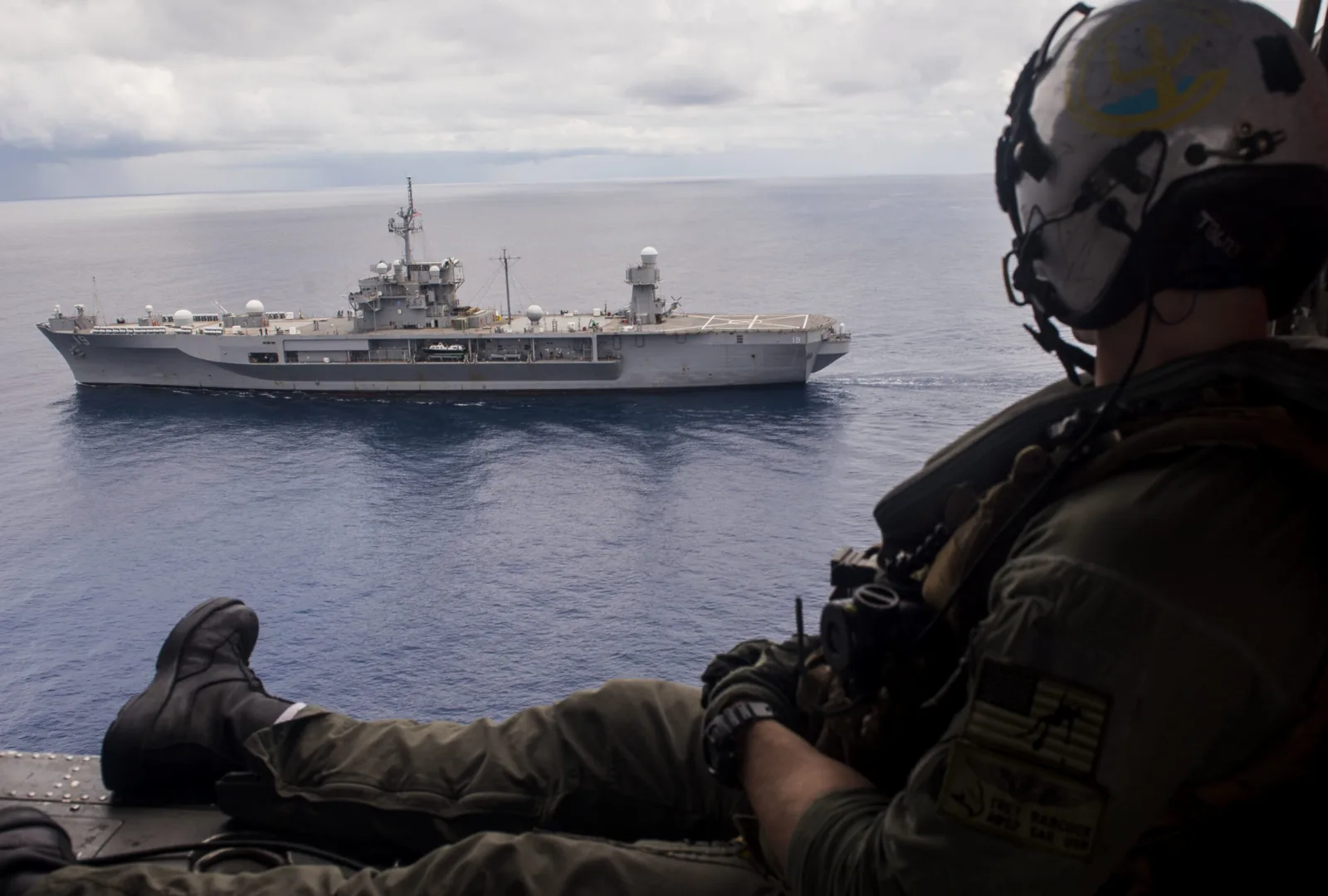Envisioning a U.S. Strategy of Restraint in the South China Sea and Beyond
This summer marked the fifth anniversary of the ruling by a tribunal convened by the U.N. Commission on the Law of the Sea in response to a case submitted by the Philippines against the People’s Republic of China. To note the occasion, U.S. Secretary of State Antony Blinken reiterated previous U.S. rhetoric that China was “threatening freedom of navigation” and urged Beijing to “reassure the international community that it is committed to the rules-based maritime order.” But what is the rules-based maritime order? How can the United States best work with countries throughout the Indo-Pacific region to strengthen and improve that order? Is it possible to work with rather than against China in bolstering the rules-based maritime order, and if so, how and in what areas? To address these questions, the Quincy Institute recently published the report, “Promoting Peace and Stability in the Maritime Order Amid China’s Rise,” authored by Rachel Esplin Odell. Odell traces how China’s maritime rise is impacting its relationship with the United States and with China’s neighbors. She analyzes how China has evolved to favor greater freedom of navigation as its own naval and maritime activities have expanded, even while it doubles down on its expansive and vague claims in the South China Sea. Faced with these dynamics, Odell suggests ways the United States can craft a strategy of military restraint and diplomatic engagement in the Indo-Pacific that reduces security tensions, enhances crisis management, and builds a more inclusive maritime order in the region and beyond. On October 4, experts on maritime security in the Western Pacific will convene to explore and debate the analysis and recommendations of this report and offer their own ideas for promoting peace and stability at sea. Panelists include Mike M. Mochizuki, Japan-U.S. Relations Associate Professor of Political Science and International Affairs at the Elliott School of International Affairs, George Washington University; Bec Strating, Executive Director of La Trobe Asia and Senior Lecturer at La Trobe University; Gregory Poling, Senior Fellow for Southeast Asia and Director, Asia Maritime Transparency Initiative, Center for Strategic and International Studies; and Shuxian Luo, Post-Doctoral Research Fellow in the Foreign Policy program at the Brookings Institution. Michael D. Swaine, Director of the East Asia Program at the Quincy Institute, will moderate the discussion.
Program
Topics
Panelists

Mike M. Mochizuki
Mike Mochizuki holds the Japan-U.S. Relations Chair in Memory of Gaston Sigur at the Elliott School of International Affairs at The George Washington University. Dr. Mochizuki was director of the Sigur Center for Asian Studies from 2001 to 2005. He co-directs the “Memory and Reconciliation in the Asia-Pacific” research and policy project of the Sigur Center. Previously, he was a Senior Fellow at the Brookings Institution. He was also Co-Director of the Center for Asia-Pacific Policy at RAND and has taught at the University of Southern California and Yale University.

Bec Strating
Bec Strating is the Executive Director of La Trobe Asia and a Senior Lecturer in Politics and International Relations in the Department of Politics, Media and Philosophy at La Trobe University. Her research focuses on maritime disputes in Asia and Australian foreign and defence policy. Bec has written three monographs, most recently "Defending the Maritime Rules-Based Order" (2020). In 2019, she was awarded an Asian Studies Visiting Fellowship to research at the East West Center in Washington DC for three months. She was also a visiting affiliate fellow at the Institute of Southeast Asian Studies in Singapore, an affiliated researcher at Georgetown University and am currently a non-visiting fellow at the Perth US Asia Centre.

Gregory Poling
Gregory B. Poling is a senior fellow for Southeast Asia and director of the Asia Maritime Transparency Initiative at the Center for Strategic and International Studies. He is one of the world’s foremost experts on the South China Sea disputes and conducts research on U.S. alliance relations, democracy and governance in Southeast Asia, and maritime security across the Indo-Pacific. Gregory's writings have been featured in Foreign Affairs, the Wall Street Journal, Nikkei Asian Review, and Foreign Policy, among others. He is the author or coauthor of multiple works on the South China Sea, maritime security, and U.S. relationships in Southeast Asia. Gregory received an MA in international affairs from American University and a BA in history and philosophy from St. Mary’s College of Maryland.

Shuxian Luo
Shuxian Luo is a Post-Doctoral Research Fellow in the Foreign Policy program at the Brookings Institution. She received her Ph.D. in International Relations from Johns Hopkins University School of Advanced International Studies (SAIS). Her research examines China’s crisis behavior and decision-making processes, maritime security in the Indo-Pacific, US relations with Asia, and Asia-Arctic policies. Dr. Luo holds an M.A. in China Studies from SAIS, an M.A. in Political Science from Columbia University, and a B.A. in English from Peking University.

Michael D. Swaine (Moderator)
Michael D. Swaine, director of QI’s East Asia program, is one of the most prominent American scholars of Chinese security studies. He comes to QI from Carnegie Endowment for International Peace, where he worked for nearly twenty years as a senior fellow specializing in Chinese defense and foreign policy, U.S.-China relations, and East Asian international relations. Swaine has authored and edited more than a dozen books and monographs, including Remaining Aligned on the Challenges Facing Taiwan (with Ryo Sahashi; 2019), Conflict and Cooperation in the Asia-Pacific Region: A Strategic Net Assessment (with Nicholas Eberstadt et al; 2015) and many journal articles and book chapters. Swaine received his doctorate in government from Harvard University and his bachelor’s degree from George Washington University.
